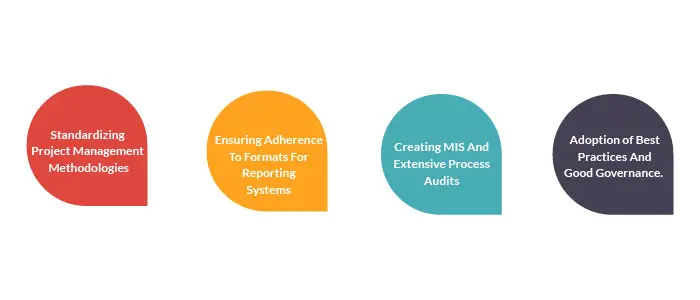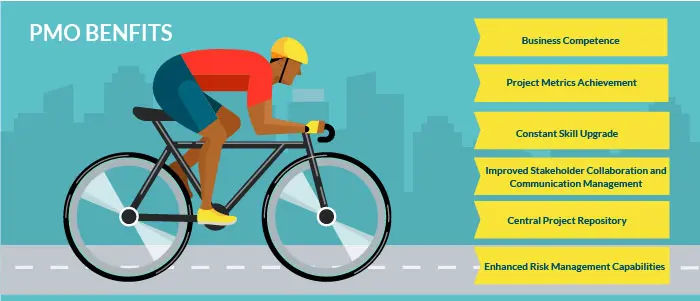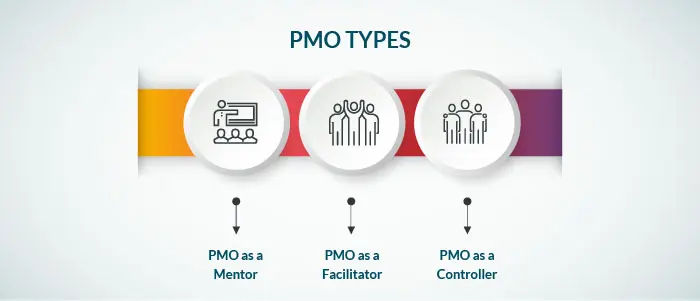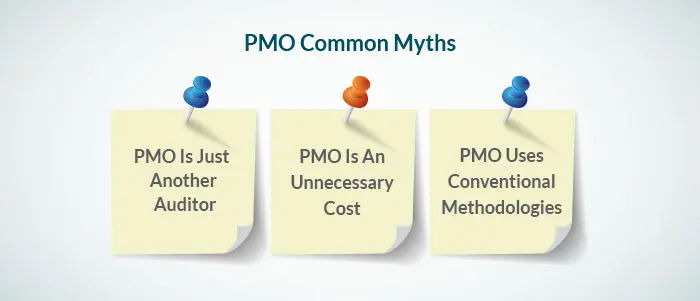- Blog Categories
- Project Management
- Agile Management
- IT Service Management
- Cloud Computing
- Business Management
- Business Intelligence
- Quality Engineer
- Cyber Security
- Career
- Big Data
- Programming
- Most Popular Blogs
- PMP Exam Schedule for 2024: Check PMP Exam Date
- Top 60+ PMP Exam Questions and Answers for 2024
- PMP Cheat Sheet and PMP Formulas To Use in 2024
- What is PMP Process? A Complete List of 49 Processes of PMP
- Top 15+ Project Management Case Studies with Examples 2024
- Top Picks by Authors
- Top 170 Project Management Research Topics
- What is Effective Communication: Definition
- How to Create a Project Plan in Excel in 2024?
- PMP Certification Exam Eligibility in 2024 [A Complete Checklist]
- PMP Certification Fees - All Aspects of PMP Certification Fee
- Most Popular Blogs
- CSM vs PSM: Which Certification to Choose in 2024?
- How Much Does Scrum Master Certification Cost in 2024?
- CSPO vs PSPO Certification: What to Choose in 2024?
- 8 Best Scrum Master Certifications to Pursue in 2024
- Safe Agilist Exam: A Complete Study Guide 2024
- Top Picks by Authors
- SAFe vs Agile: Difference Between Scaled Agile and Agile
- Top 21 Scrum Best Practices for Efficient Agile Workflow
- 30 User Story Examples and Templates to Use in 2024
- State of Agile: Things You Need to Know
- Top 24 Career Benefits of a Certifed Scrum Master
- Most Popular Blogs
- ITIL Certification Cost in 2024 [Exam Fee & Other Expenses]
- Top 17 Required Skills for System Administrator in 2024
- How Effective Is Itil Certification for a Job Switch?
- IT Service Management (ITSM) Role and Responsibilities
- Top 25 Service Based Companies in India in 2024
- Top Picks by Authors
- What is Escalation Matrix & How Does It Work? [Types, Process]
- ITIL Service Operation: Phases, Functions, Best Practices
- 10 Best Facility Management Software in 2024
- What is Service Request Management in ITIL? Example, Steps, Tips
- An Introduction To ITIL® Exam
- Most Popular Blogs
- A Complete AWS Cheat Sheet: Important Topics Covered
- Top AWS Solution Architect Projects in 2024
- 15 Best Azure Certifications 2024: Which one to Choose?
- Top 22 Cloud Computing Project Ideas in 2024 [Source Code]
- How to Become an Azure Data Engineer? 2024 Roadmap
- Top Picks by Authors
- Top 40 IoT Project Ideas and Topics in 2024 [Source Code]
- The Future of AWS: Top Trends & Predictions in 2024
- AWS Solutions Architect vs AWS Developer [Key Differences]
- Top 20 Azure Data Engineering Projects in 2024 [Source Code]
- 25 Best Cloud Computing Tools in 2024
- Most Popular Blogs
- Company Analysis Report: Examples, Templates, Components
- 400 Trending Business Management Research Topics
- Business Analysis Body of Knowledge (BABOK): Guide
- ECBA Certification: Is it Worth it?
- How to Become Business Analyst in 2024? Step-by-Step
- Top Picks by Authors
- Top 20 Business Analytics Project in 2024 [With Source Code]
- ECBA Certification Cost Across Countries
- Top 9 Free Business Requirements Document (BRD) Templates
- Business Analyst Job Description in 2024 [Key Responsibility]
- Business Analysis Framework: Elements, Process, Techniques
- Most Popular Blogs
- Best Career options after BA [2024]
- Top Career Options after BCom to Know in 2024
- Top 10 Power Bi Books of 2024 [Beginners to Experienced]
- Power BI Skills in Demand: How to Stand Out in the Job Market
- Top 15 Power BI Project Ideas
- Top Picks by Authors
- 10 Limitations of Power BI: You Must Know in 2024
- Top 45 Career Options After BBA in 2024 [With Salary]
- Top Power BI Dashboard Templates of 2024
- What is Power BI Used For - Practical Applications Of Power BI
- SSRS Vs Power BI - What are the Key Differences?
- Most Popular Blogs
- Data Collection Plan For Six Sigma: How to Create One?
- Quality Engineer Resume for 2024 [Examples + Tips]
- 20 Best Quality Management Certifications That Pay Well in 2024
- Six Sigma in Operations Management [A Brief Introduction]
- Top Picks by Authors
- Six Sigma Green Belt vs PMP: What's the Difference
- Quality Management: Definition, Importance, Components
- Adding Green Belt Certifications to Your Resume
- Six Sigma Green Belt in Healthcare: Concepts, Benefits and Examples
- Most Popular Blogs
- Latest CISSP Exam Dumps of 2024 [Free CISSP Dumps]
- CISSP vs Security+ Certifications: Which is Best in 2024?
- Best CISSP Study Guides for 2024 + CISSP Study Plan
- How to Become an Ethical Hacker in 2024?
- Top Picks by Authors
- CISSP vs Master's Degree: Which One to Choose in 2024?
- CISSP Endorsement Process: Requirements & Example
- OSCP vs CISSP | Top Cybersecurity Certifications
- How to Pass the CISSP Exam on Your 1st Attempt in 2024?
- Most Popular Blogs
- Best Career options after BA [2024]
- Top Picks by Authors
- Top Career Options & Courses After 12th Commerce in 2024
- Recommended Blogs
- 30 Best Answers for Your 'Reason for Job Change' in 2024
- Recommended Blogs
- Time Management Skills: How it Affects your Career
- Most Popular Blogs
- Top 28 Big Data Companies to Know in 2024
- Top Picks by Authors
- Top Big Data Tools You Need to Know in 2024
- Most Popular Blogs
- Web Development Using PHP And MySQL
- Top Picks by Authors
- Top 30 Software Engineering Projects in 2024 [Source Code]
- More
- Tutorials
- Practise Tests
- Interview Questions
- Free Courses
- Agile & PMP Practice Tests
- Agile Testing
- Agile Scrum Practice Exam
- CAPM Practice Test
- PRINCE2 Foundation Exam
- PMP Practice Exam
- Cloud Related Practice Test
- Azure Infrastructure Solutions
- AWS Solutions Architect
- AWS Developer Associate
- IT Related Pratice Test
- ITIL Practice Test
- Devops Practice Test
- TOGAF® Practice Test
- Other Practice Test
- Oracle Primavera P6 V8
- MS Project Practice Test
- Project Management & Agile
- Project Management Interview Questions
- Release Train Engineer Interview Questions
- Agile Coach Interview Questions
- Scrum Interview Questions
- IT Project Manager Interview Questions
- Cloud & Data
- Azure Databricks Interview Questions
- AWS architect Interview Questions
- Cloud Computing Interview Questions
- AWS Interview Questions
- Kubernetes Interview Questions
- Web Development
- CSS3 Free Course with Certificates
- Basics of Spring Core and MVC
- Javascript Free Course with Certificate
- React Free Course with Certificate
- Node JS Free Certification Course
- Data Science
- Python Machine Learning Course
- Python for Data Science Free Course
- NLP Free Course with Certificate
- Data Analysis Using SQL
PMO as a Mentor, Facilitator and Controller for Successful Projects
Updated on Oct 12, 2017 | 4 min read | 8.4k views
Share:
Table of Contents
A PMO, also known as a Project Management Office or a Program Management Office is an entity that adopts, enforces and maintains standard methodologies and processes of project management within the organization. A PMO would consist of people conversant with guidelines mentioned in the PMBOK® or PRINCE2 depending on the region where the services are required or incase the organization has a specific inclination towards adopting one of these practices.
As per PMI's "Pulse of the Profession" - 2017 edition, the percentage of organizations with a PMO is witnessing an upward trend. The figure has skyrocketed from 61% in 2007 to 71% today. Also, organizations which have their PMOs aligned to the company's strategy report 38% more projects being successful and 33% fewer projects ending up as failures.
What is a PMO?
Every organization undertakes projects for some targeted benefits and the primary function of every PMO is to ensure that projects, programs and portfolios of the organization are streamlined towards achieving their strategic objectives. However, today's changing dynamics have led to PMOs assuming greater roles and responsibilities ranging from coaching to handholding & even directing projects towards successful deliveries.
Senior management expects the PMO to reach every nook & corner of the company's system and channelize all functional departments towards assisting favorable project outcome. An agile environment takes the concept of PMO to an entirely new level. It is expected that the PMO is in sync with market requirements, technology, existing & emerging competition and possesses capability & capacity to influence decision making at the higher most level.
A PMO ensures that different verticals in an organization are guided and controlled in a similar fashion without any prejudice and that resources are utilized and shared effectively from within the common pool. In a traditional set up a PMO can be seen second line to project manager
Insider Tips to Land Your Dream Scrum Master Job
Includes Scrum Resume Sample

In a traditional set up a PMO can be seen:

PMO Benefits
PMO has umpteen benefits that help an organization deliver successful projects. Some important and pertinent ones are:

Business Competence: PMOs assist in successful selection of projects that align with the organization strategy and goals. Successful execution & closure of beneficial projects leads to increase in profits. An agile PMO ensures that project selection is in line with the market sentiments and may even go ahead with postponing or dissolving projects that might hurt company's finances.
Project Metrics Achievement: PMOs keep an eagle eye over metrics that define project success by ensuring successful delivery within PMI's triangle of scope, time and quality. Organizations benefit from PMOs abilities to quickly and effectively address gaps and timely closure of projects within schedule & budget.
Constant Skill Upgrade: One of the important responsibilities of a PMO is to educate the organization and its project managers on project management skills. There is a constant stress on developing better communication/ managerial skills and train staff to embrace newer technologies thereby enabling them to deliver in an agile environment.
Improved Stakeholder Collaboration and Communication Management: PMOs are responsible for streamlining communication & coordination between internal and external stakeholders of the organization. Ensuring clear and precise lateral & hierarchical communication between departments and resources facilitates better understanding of the objectives and improved productivity.
Central Project Repository: PMOs are the custodian of historical database of the organization. They are responsible for continuously building a repository of past & present projects that are accessible and can be revisited every-time for reference and learning. This compendium strategically helps in project selection and risk mitigation as opportunities and threats of past projects are duly documented.
Enhanced Risk Management Capabilities: PMOs ensure that project risks are managed, analyzed and mitigated before they pose a threat to project success. The ability to look well into the future and assess what may affect the project adversely is a primary benefit of having PMOs.
PMO Types

PMO functions in different ways depending upon the degree of influence and extent of involvement required at the project. The same PMO can be a mentor on one project, a facilitator on another, while it can act as a project controller on the third.
1. PMO as a Mentor: Every individual benefits from a mentor, likewise every project can be steered towards successful completion if provided with the right guidance at the right time. A supportive PMO assists the project via consultation and by providing valuable inputs on best practices, past learning, templates, deliverables and training in the right direction. Projects in such an environment benefit from the expertise available, but the onus of utilizing this support lies entirely with the project manager. Organizations where projects are consistently delivering on the set targets, but lack a professional and streamlined approach can benefit from a PMO in a supporting role.
2. PMO as a Facilitator: A supporter and an enabler, this kind of a PMO ensures adherence to periodic project reviews, audits, compliance to standards and intensive reporting. By far this is the most important role large organizations expect their PMOs to play. Success in this situation can be largely attributed to a clear management mandate that PMO support and control over the project needs to be complied with. The project manager’s buy-in and the organization's willingness towards outright support for PMO proceedings is the key to successful delivery of projects in such cases.
3. PMO as a Controller: The controlling PMO is actually “in-charge” of the project. The PMO in this role directs the project and takes control of all aspects of the project. The PMO may loan out their project managers to take control of the project or the project manager directly reports to a PMO director and conforms to the professional expertise, experience and project management practices of the PMO in entirety. Such examples can be seen in cases wherein the project is unique in nature or when the risks involved & stakes are too high for that project.
Get recognized as a project management expert with our PRINCE2 course and earn your PRINCE2 Foundation certs with ease.
PMO Common Myths

1. PMO is Just another Auditor: PMO is often considered to be a reviewer and auditor of processes & practices prevalent in the organization. Generally this leads to a sense of insecurity amongst the employees and they end up not being forthcoming in reporting shortfalls. However, an efficient PMO is one which strives for project’s buy-in and ensures that they work hand in hand with the projects team supporting and assisting them in every way possible. Training projects on efficient ways, methodologies and essential software skills leads to greater knowledge sharing, acceptance and harmony among the stakeholders.
2. PMO is an Unnecessary Cost: Organizations where the culture of a PMO is new, often feel that the PMO team is a monitory burden with no tangible benefits. However, every process driven organization has a PMO team in place with benefits that clearly outweigh the costs involved. A PMO which is constituted from within the organization is cost effective and also beneficial as it is aware of the organization’s culture and conversant with the existing system of operation. PMO targets can easily be achieved by using basic project management software, and limited but efficient resources. As per the general trend any PMO department requires 3 to 6 months to realize their short term targets and at least 2 to 3 years for long term benefit realization.
3. PMO Uses Conventional Methodologies: PMOs no longer adopt traditional ways of working but make use of agile project management approaches. Good and efficient PMOs are tech savvy and aware of emerging technologies required for effective control and management of projects. Today PMOs are constantly evolving, can adapt to market dynamics/ product requirements and are beneficial at every stage of the project lifecycle.
With projects getting bigger and complex, organizations are looking for ways to rein in the diversity and operate them under a single umbrella that adopts a regimented approach towards project monitoring and control, but also understand project peculiarities and directs them towards achieving organization goals. PMO is definitely the answer and way forward.
Get Free Consultation
By submitting, I accept the T&C and
Privacy Policy
Ready to lead with Scrum expertise?


